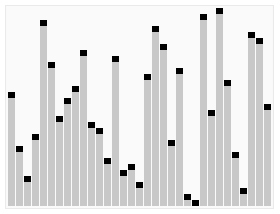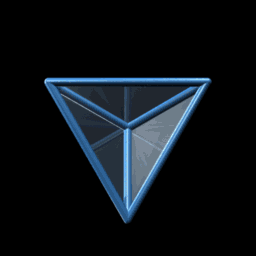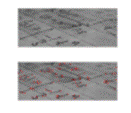| |
| |
|
| Fields of Computer Science |
| Applications of Computer Science |
| Carrer Options |










Computer Science & Engineering
Introduction
Computer science is the study of the theoretical foundations of information and computation, and of practical techniques for their implementation and application in computer systems. It is frequently described as the systematic study of algorithmic processes that describe and transform information; the fundamental question underlying computer science is, "What can be (efficiently) automated?" Computer science has many sub-fields; some, such as computer graphics, emphasize the computation of specific results, while others, such as computational complexity theory, study the properties of computational problems. Still others focus on the challenges in implementing computations. For example, programming language theory studies approaches to describing computations, while computer programming applies specific programming languages to solve specific computational problems, and human-computer interaction focuses on the challenges in making computers and computations useful, usable, and universally accessible to people.
The general public sometimes confuses computer science with vocational areas that deal with computers (such as information technology), or think that it relates to their own experience of computers, which typically involves activities such as gaming, web-browsing, and word-processing. However, the focus of computer science is more on understanding the properties of the programs used to implement software such as games and web-browsers, and using that understanding to create new programs or improve existing ones.
Computer science is a theoretical study of computation and algorithmic reasoning. These programs often feature the theory of computation, analysis of algorithms, formal methods, concurrency theory, databases, computer graphics and systems analysis, among others. They typically also teach computer programming, but treat it as a vessel for the support of other fields of computer science rather than a central focus of high-level study.
Computer science, emphasize the practice of advanced programming rather than the theory of algorithms and computation in their computer science curricula. Such curricula tend to focus on those skills that are important to workers entering the software industry. The practical aspects of computer programming are often referred to as software engineering. However, there is a lot of disagreement over the meaning of the term, and whether or not it is the same thing as programming.
.
Fields computer science
The broader field of theoretical computer science encompasses both the classical theory of computation and a wide range of other topics that focus on the more abstract, logical, and mathematical aspects of computing.
|
|
|
|
|
|
|
Mathematical logic |
Automata theory |
Number theory |
Graph theory |
Category theory |
Computational geometry |
Quantum computing theory |
Algorithms and data structures
O(n2) |
|
|
Analysis of algorithms |
Algorithms |
Data structures |
Programming methodology and languages
|
|
Compilers |
Programming languages |
Computer elements and architecture
|
|
|
Digital logic |
Microarchitecture |
Multiprocessing |
Numerical and symbolic computation
|
|
|
|
|
|
y = sin(x) + c |
Bioinformatics |
Cognitive Science |
Computational chemistry |
Computational neuroscience |
Computational physics |
Numerical algorithms |
Symbolic mathematics |
Applications
The following disciplines are often studied from a more theoretical, computer science viewpoint, as well as from a more practical, engineering perspective.
|
|
|
|
|
Operating systems |
Computer networks |
Computer graphics |
Computer vision |
Databases |
|
|
|
|
|
Computer security |
Artificial intelligence |
Robotics |
Human-computer interaction |
Ubiquitous computing |























